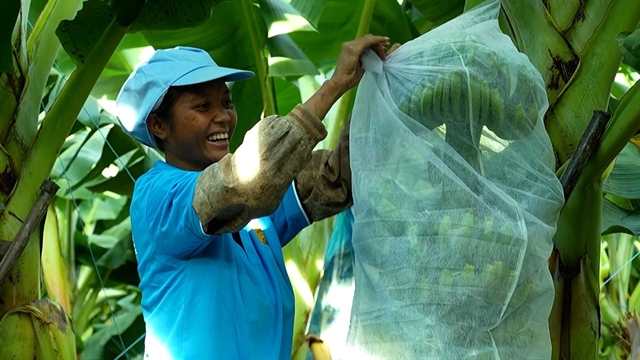 Society
Society


|
| The Government of Việt Nam in 2016 issued a decree that mandates the fortification of salt, wheat flour and vegetable oil and the use of fortified salt and wheat flour by the food industry. — VNA/VNS Photo Tuấn Anh |
HÀ NỘI — WHO and UNICEF have called on the Government of Việt Nam and State agencies to implement the Government Decree 09/2016/ND-CP that mandates the fortification of salt, wheat flour and vegetable oil and the use of fortified salt and wheat flour by the food industry.
In their joint statement released on Thursday, they noted that the decree had not been implemented after more than five years since its adoption. This is despite the fact that food fortification, including use of fortified food ingredients in processed foods, is already the global norm, with no detrimental impact on the final food product or business profitability and sales. Food fortification contributes to a smart and healthy population, which benefits society and national development.
The decree is in line with global recommendations to prevent and control micronutrient deficiency and highlights the Government’s commitment to improving the health of its population.
According to 2021 Iodine Global Network report, Việt Nam is among a group of 26 countries remaining in the world with iodine deficiency.
The 2019 General Nutrition Survey (GNS) conducted by the National Institute of Nutrition of the Ministry of Health (MOH) showed that the median urinary iodine concentration among pregnant women dropped from 122 µg/L in 2006 to 83 µg/L in 2009, and remained at the very low level of 83.4 µg/L in 2019, which is far below the global standard of 150 µg/L.
In addition, the 2019 GNS revealed that only 30 per cent of households in Việt Nam were consuming adequate iodised salt, which is alarming.
Moreover, the GNS 2019 demonstrated that zinc deficiency among was a significant public health problem, especially among pregnant women (63 per cent) and under-five-year-old children (58 per cent). Iron deficiency (anaemia) among under-five-year-old children was 53.2 per cent and 50,3 per cent among pregnant women.
Iodine deficiency is a significant cause of mental retardation in children, and stillbirth and miscarriage in women. Iron deficiency increases the risk of maternal death and poor fetal development and impairs motor and cognitive development in children and productivity among adults. Zinc deficiency increases the incidence of diarrhea, the risk of acute respiratory infection and child mortality.
WHO recommends that fortification of all food-grade salt, used in household and food processing, with iodine is a safe and effective strategy for the prevention and control of iodine deficiency disorders. Fortification of widely consumed staple foods and condiments, such as salt, vegetable and wheat flour, is a globally recognised and highly cost-effective strategy for increasing nutrient intake without the requirement of changing eating behaviours or substantial government costs.
There is internationally-proven evidence that the use of iodized salt has no negative impact on the final product’s colour, taste and smell.
Based on WHO recommendations, fortification of salt, wheat flour and vegetable oil are mandatory in 126, 90 and 33 countries respectively. A total of 114 of the 126 countries that currently have mandatory legislation for edible salt iodization have included the requirement to use iodized salt in processed foods.
In Asia, 17 countries have legislation for mandatory fortification of wheat flour; seven countries for mandatory fortification of oil and 35 for mandatory fortification of salt, of which 29 countries require salt used in food processing to be fortified.
Evidence shows that every dollar spent on salt iodization and flour fortification results in a return on that investment of more than US$10. Fortification is not free, but all competitors will face the same costs. Making fortification mandatory is fair for both businesses and consumers. The same standards should be required for all relevant food products imported into Việt Nam.
WHO and UNICEF strongly recommend the Government fully implement Decree 09, including ensuring processed foods are made with iodized salt and fortified wheat flour, and companies are supported favourably and positively to ensure their compliance.
Food producers and distributors can be supported by clear guiding regulations on compliance requirements and the use of fortified ingredients recognising that in Việt Nam, the main source of dietary salt and wheat flour is processed foods and meals consumed outside households.
This will strengthen the human capital of Việt Nam and is in line with the UN Decade of Action on Nutrition.
As part of the UN, the WHO and UNICEF have re-commited themselves to supporting the Government’s drive toward the attainment of national development priorities, including food fortification.— VNS




